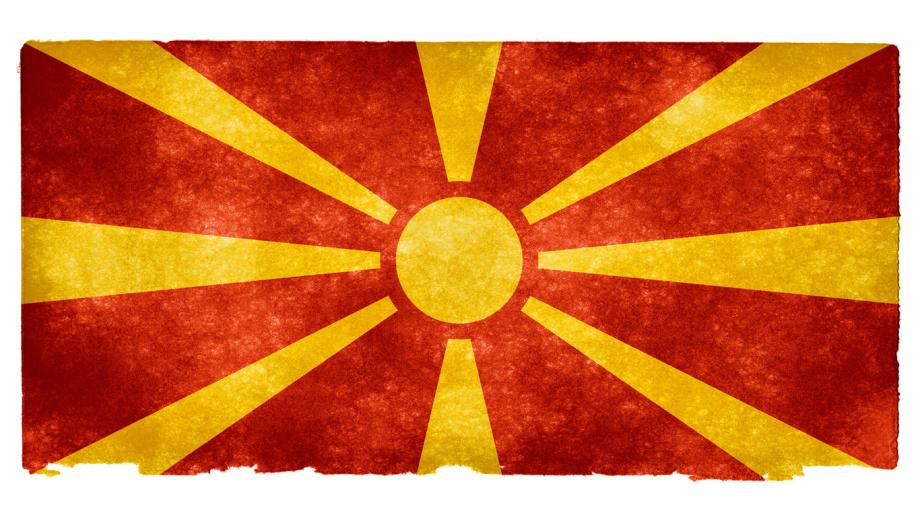Macedonia’s NATO Story: Good Things Come to Those Who Wait

NATO’s recent Brussels Summit was high on drama and packed full of highlights. However, one highlight that is likely to have passed even the most seasoned observer by was the decision to formally invite Macedonia to join the Alliance. After years spent sitting patiently in the ‘’waiting room’’ the small Western Balkan nation could soon become NATO’s 30th member state. Skopje’s cause has undoubtedly benefitted from the resolution of its ‘’name issue’’ with Greece, a dispute which led to Athens thwarting its neighbour’s EU and NATO aspirations for almost three decades. There can also be no doubt that Macedonia is relieved to have turned a significant corner in its bid to join the Alliance. But there is still a long way to go before ambitions become reality.
A Difficult Journey (So Far)
Macedonia’s NATO aspirations were set in stone in 1999 when it joined the Membership Action Plan (MAP). At the now infamous Bucharest Summit of 2008, the Alliance concluded that the country was technically ready to join NATO but will only be invited after it settled the naming dispute with Greece. In the intervening years Macedonia’s armed forces demonstrated their effectiveness and value with significant contributions to NATO operations in Afghanistan and neighbouring Kosovo. Macedonia also benefited from a 2001 NATO operation on its own territory to combat an insurgency by the ethnic Albanian National Liberation Army. The successful conclusion of “Operation Essential Harvest” and signing of the Ohrid Agreement helped to lay the foundations of the country’s current political system.
It should also be noted that, despite Macedonia’s relatively recent internal problems, popular support for NATO membership has traditionally been high. That said, support began to wane following the election of Nikola Gruevski and his VMRO-DPMNE party. While Gruevski paid lip service to resolving Macedonia’s dispute with Greece, his government was nevertheless determined to build a national identity around “ancient Macedonia” and memories of Alexander the Great. It was a decision that did not go down well in Athens and ensured that Macedonia’s door to the EU and NATO remained firmly shut.
Popular support for Gruevski’s administration eventually began to decline in the wake of damaging allegations of creeping corruption and nepotism. A series of anti-Government protests between May and June 2015 prompted the EU’s Commissioner for the Neighbourhood Johannes Hahn to attempt to negotiate a solution between the government and opposition. This resulted in the signing of the Przhino Agreement and snap elections in December 2016.
Despite gaining the most votes, the VMRO-DPMNE lost all its parliamentary allies and was unable to form a new coalition. In June 2017, Gruevski was replaced by a new government led by Zoran Zaev’s Social Democrats (SDSM). Since then, the current Macedonian prime minister has worked to mend relations with Bulgaria and Greece. Zaev’s government has significantly toned down the nationalist rhetoric of his predecessor and, in a bid to reignite EU and NATO membership aspirations, sought a compromise with both Athens and Sofia.
Still Some Significant Obstacles Ahead
As things currently stand, Macedonia’s bid to join NATO rests on the country’s ability to ratify the name change agreement with Greece. Success is far from guaranteed. While the Macedonian parliament has already ratified the agreement twice (thanks to the veto powers of VMRO-DPMNE supported president) its decision ultimately rests on a nationwide referendum pencilled for the coming September or October. Doubts have been raised over the government’s ability to persuade at least 50% of the electorate to come to the polls, the amount required for the referendum to be valid. This would play into the hands of the nationalist opposition, which is vocally against the deal.
To this end, Prime Minister Zaev has already declared that if the referendum result is anything other than a pro-agreement victory he will resign and invoke early elections. Other stumbling blocks also exist. Parliament needs to adopt a new constitution too, which requires the support of two-thirds of its members. Zaev’s government has a slim majority over its opponents, meaning that it might have to look to the official opposition to get a deal through. Failure to do so might also invoke an early election with the current administration expected to strengthen its position while pushing NATO membership further behind (a yet to be agreed) schedule.
Even if all goes well and Macedonia ratifies the agreement, Greece still needs to do the same. All that is required is a simple majority in the Greek parliament and the current government’s continued support for bringing Macedonia into the EU fold. However, Athens’ long-term support also depends on the outcome of parliamentary elections slated for fall 2019. A victory for Greece’s nationalist parties would probably result in the killing of the naming deal, a move that would undoubtedly keep Macedonia in the NATO ‘‘waiting room’’ for the foreseeable future.
Russia Ante Portas?
Russia is a vocal opponent of Macedonia’s bid to join NATO and is regarded as hostile towards the recent thaw in relations with Greece. On the same day that Skopje received its invitation to join the Alliance, Athens declared two Russian “diplomats” persona non-grata and blocked entry to Greece for two more. Media reports suggested that they were working to sabotage the recently-brokered Greece – Macedonia deal.
Macedonia also experienced an increase in questionable Russian activities in the aftermath of the 2016 elections where Moscow openly supported nationalist parties opposed to the agreement. This was accompanied by a barrage of “alternative media” and fake news outlets providing an “alternative view” of the situation inside the country.
It is worth noting, however, that Russia had a relatively weak position in Macedonia prior to December 2016. There are very few Russian investments inside the country, trade between both is negligible and Moscow tended to prioritise relations with ‘bigger’ neighbours such as Greece, Bulgaria and especially Serbia. However, following Skopje’s announcement that it had struck a deal with Greece and was also renewing efforts to join NATO and the EU Russia started to pay more attention.
The most obvious symbol of Moscow’s growing interest in Macedonia is the “United Macedonia” (Edinstvena Makedonija) party, which has more than just a passing resemblance to ‘’United Russia“ (Yedinaya Rossiya) – even their party symbols are very similar. “United Macedonia” opposes the deal with Greece and membership of the EU and NATO but does support pan-Slavism and close cooperation with Russia and Serbia. The Kremlin’s ideologue Alexander Dugin visited Macedonia earlier this year not only to offer support to the party, but also to goad the country’s pro-Western majority.
‘’United Macedonia’’ is still some way off becoming a relevant political force inside the country. However, its emergence provides a timely reminder of Russia’s activities in Montenegro in the build-up to its NATO accession. This was an event that was almost scuppered by a coup attempt around the time of the country’s October 2016 parliamentary election.
Crucial Next Steps
Macedonia must now ensure that its electorate gets the opportunity to freely and fairly decide whether it wants to take Macedonia into NATO. This, coupled with the naming deal with Greece, will go a long way to determining whether the country follows a European and Euro-Atlantic path or stays in the ‘’waiting room’’. To assist, Macedonia’s NATO allies should be on hand to provide assistance and political support to Skopje. Failure to do so will only provide ‘’unhelpful’’ external actors with opportunities to destabilise the political situation in this fragile but ambitious country.
Image: Nicholas Raymond. This work is licensed under a Creative Commons Attribution 3.0 Unported License.

Former Head of European Neighbourhood Programme, GLOBSEC Policy Institute